Intro
Discover 5 ways to test for syphilis, a sexually transmitted infection. Learn about diagnostic methods, including blood tests, physical exams, and rapid plasma reagin tests, to detect syphilis symptoms and prevent complications.
Syphilis is a bacterial infection that is usually spread through sexual contact. The disease can cause serious health problems if left untreated, making it crucial to diagnose and treat it promptly. There are several ways to test for syphilis, and understanding these methods can help individuals take control of their health. In this article, we will delve into the importance of syphilis testing, the different methods available, and what to expect from the testing process.
The importance of syphilis testing cannot be overstated. Syphilis can lead to severe complications, including blindness, hearing loss, and even death, if left untreated. Moreover, pregnant women with syphilis can pass the infection to their unborn babies, resulting in congenital syphilis. This condition can cause birth defects, miscarriage, or stillbirth. Therefore, it is essential to get tested for syphilis if you are sexually active, have multiple sexual partners, or have been exposed to the infection.
Early detection and treatment of syphilis can significantly improve health outcomes. The Centers for Disease Control and Prevention (CDC) recommends that individuals at high risk of syphilis, including men who have sex with men, get tested at least once a year. Additionally, pregnant women should be screened for syphilis during their first prenatal visit. By getting tested, individuals can ensure they receive timely treatment and prevent long-term health consequences.
Syphilis Testing Methods
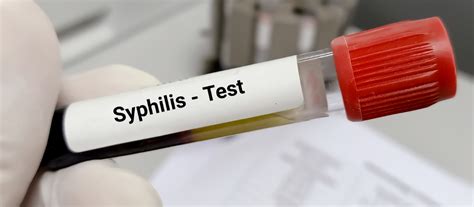
There are several methods to test for syphilis, including blood tests, physical examinations, and spinal fluid tests. The most common method is the blood test, which detects the presence of antibodies against the syphilis bacteria. The blood test can be performed at any stage of the infection, and it is usually the first step in diagnosing syphilis.
Blood Tests for Syphilis
Blood tests for syphilis can be divided into two categories: non-treponemal tests and treponemal tests. Non-treponemal tests, such as the Venereal Disease Research Laboratory (VDRL) test and the Rapid Plasma Reagin (RPR) test, detect the presence of antibodies that are not specific to the syphilis bacteria. These tests are often used as screening tools, but they can produce false-positive results.Treponemal tests, such as the Fluorescent Treponemal Antibody Absorption (FTA-ABS) test and the Treponema pallidum particle agglutination (TP-EIA) test, detect the presence of antibodies that are specific to the syphilis bacteria. These tests are more accurate than non-treponemal tests and are often used to confirm a diagnosis of syphilis.
Physical Examination for Syphilis
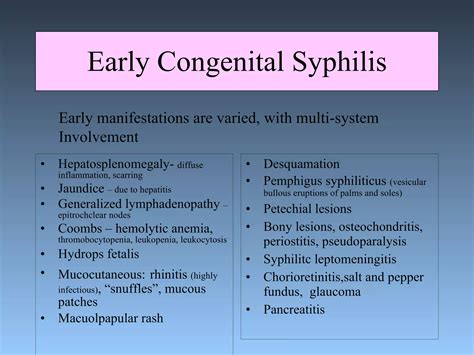
A physical examination can also be used to diagnose syphilis. During the examination, a healthcare provider will look for signs and symptoms of the infection, such as a chancre (a painless sore) on the genitals, anus, or mouth. The provider may also perform a pelvic examination to check for any abnormalities in the reproductive organs.
Spinal Fluid Tests for Syphilis
In some cases, a spinal fluid test may be performed to diagnose syphilis. This test involves collecting a sample of cerebrospinal fluid (CSF) from the spinal cord and testing it for the presence of syphilis antibodies. The CSF test is usually performed when there are signs and symptoms of neurosyphilis, such as confusion, seizures, or difficulty walking.What to Expect from Syphilis Testing
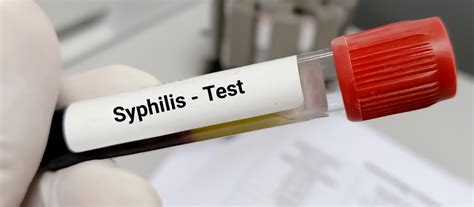
When getting tested for syphilis, individuals can expect a relatively quick and painless process. The blood test involves a simple blood draw, which is usually performed in a healthcare provider's office or a laboratory. The physical examination may involve a more thorough evaluation, but it is still a relatively quick process.
If the test results are positive, the healthcare provider will discuss treatment options with the individual. The most common treatment for syphilis is a course of antibiotics, which can cure the infection if started promptly. It is essential to follow the treatment plan and attend follow-up appointments to ensure the infection is fully cleared.
Benefits of Syphilis Testing
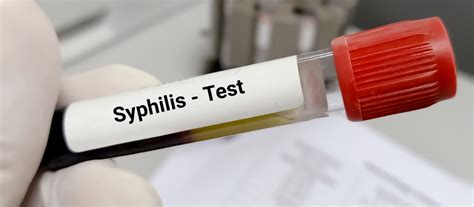
There are several benefits to getting tested for syphilis. Some of the benefits include:
- Early detection and treatment: Syphilis testing can help identify the infection early, when it is easier to treat.
- Prevention of long-term health consequences: Untreated syphilis can lead to severe health problems, including blindness, hearing loss, and even death.
- Prevention of transmission: Getting tested and treated for syphilis can prevent the transmission of the infection to others.
- Peace of mind: Knowing one's syphilis status can provide peace of mind and reduce anxiety.
Practical Examples of Syphilis Testing
In practical terms, syphilis testing can be incorporated into routine healthcare visits. For example, individuals can ask their healthcare provider to include a syphilis test as part of their annual check-up. Additionally, community health clinics and organizations often offer free or low-cost syphilis testing, making it more accessible to those who may not have health insurance.Steps to Take After Syphilis Testing
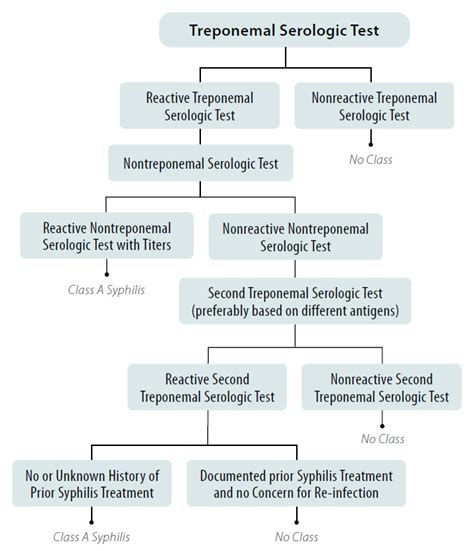
After getting tested for syphilis, individuals can take several steps to protect their health. Some of the steps include:
- Following the treatment plan: If the test results are positive, it is essential to follow the treatment plan and attend follow-up appointments.
- Practicing safe sex: Using condoms and practicing safe sex can reduce the risk of transmitting syphilis to others.
- Getting tested regularly: Regular testing can help identify any new infections and prevent long-term health consequences.
- Informing partners: If an individual tests positive for syphilis, it is essential to inform their sexual partners so they can get tested and treated as well.
SEO Optimization for Syphilis Testing
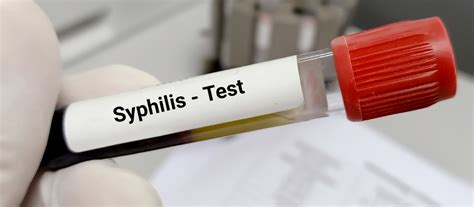
To improve the visibility of syphilis testing information online, it is essential to use relevant keywords and phrases. Some of the relevant keywords and phrases include "syphilis testing," "syphilis diagnosis," "syphilis treatment," and "STD testing." By incorporating these keywords and phrases into online content, individuals can increase the chances of their information being found by those searching for syphilis testing resources.
Statistical Data on Syphilis Testing
According to the CDC, the number of reported syphilis cases in the United States has increased in recent years. In 2020, there were over 130,000 reported cases of syphilis, with the majority of cases occurring among men who have sex with men. The CDC also reports that syphilis rates are highest among young adults, with those aged 20-29 having the highest rates of infection.Conclusion and Next Steps
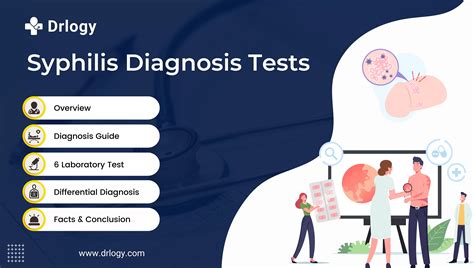
In conclusion, syphilis testing is a crucial step in protecting one's health and preventing the transmission of the infection to others. By understanding the different methods available for syphilis testing and taking steps to get tested regularly, individuals can reduce their risk of infection and ensure they receive timely treatment if they do become infected. We encourage readers to share this article with others, comment below with any questions or concerns, and take the necessary steps to prioritize their health and well-being.
What is syphilis, and how is it transmitted?
+Syphilis is a bacterial infection that is usually spread through sexual contact. It can be transmitted through vaginal, anal, or oral sex, and can also be passed from mother to child during pregnancy.
What are the symptoms of syphilis, and how is it diagnosed?
+The symptoms of syphilis can vary depending on the stage of the infection. In the early stages, syphilis can cause a painless sore on the genitals, anus, or mouth. As the infection progresses, it can cause a range of symptoms, including fever, headache, and fatigue. Syphilis is diagnosed through a combination of physical examination, blood tests, and spinal fluid tests.
How is syphilis treated, and what are the potential complications if left untreated?
+Syphilis is treated with antibiotics, usually penicillin. If left untreated, syphilis can cause a range of serious health problems, including blindness, hearing loss, and even death. It can also increase the risk of transmitting HIV and other infections.
